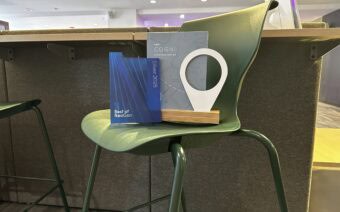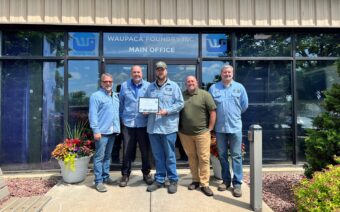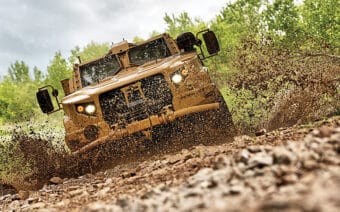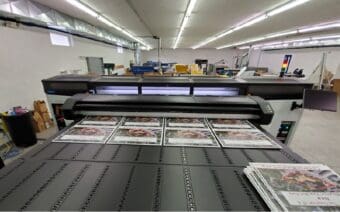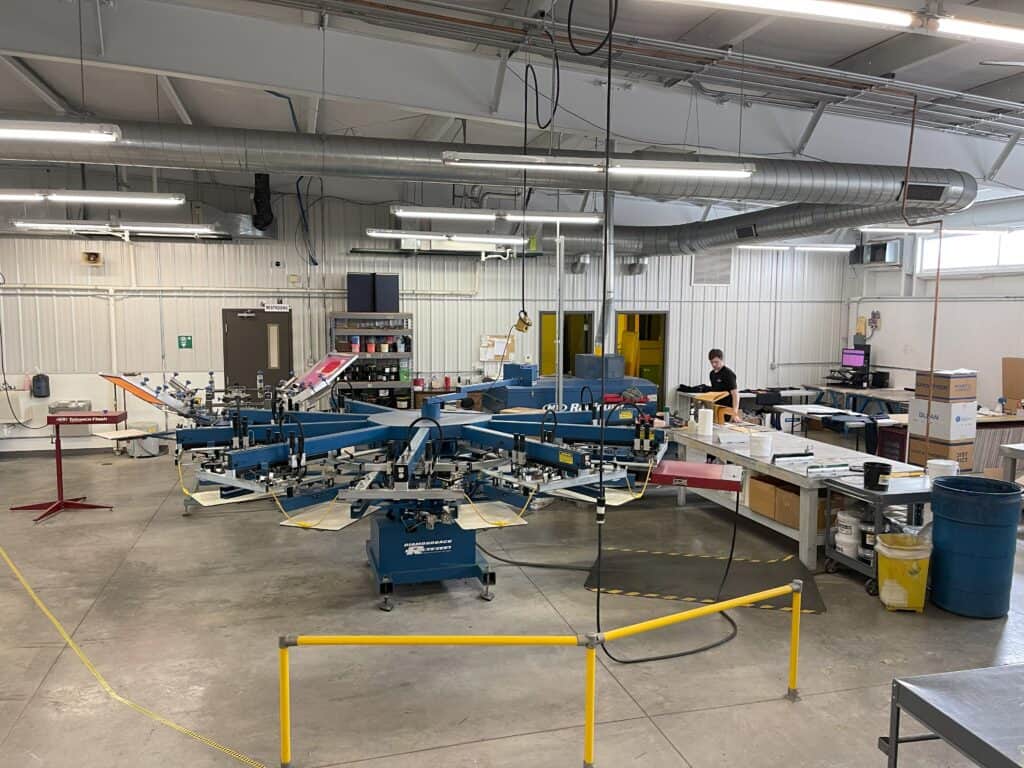
February 24, 2025
APPLETON – Owner/president Nicole Malson said STRYKER – a custom labels and apparel company based in Appleton – has made its name making things that are made to last.
Malson said it all started Dec. 5, 1960, when Fred Ziegler set up shop for Thunderbird Industries in his basement, crafting a product called metalphoto that remains a top seller today.
And though that is a mainstay, Malson said much of the business has evolved through the generations, ultimately becoming STRYKER in 2021.
Today, she said the company manufactures custom industrial nameplates, labels, tags and workwear that appeal to customers with one common denominator in mind: durability.
A necessary merger
As owner and president, Malson said she leads the third-generation, woman-owned business’s two divisions.
- The industrial label division, which is geared toward the military and heavy equipment, includes labeling aluminum products, plastics and durable vinyl
- The apparel custom printing side of the house screen prints and embroiders hardy workwear
Malson said 2021 marked a significant shift as the company began focusing on industrial clients in earnest.
She said she had purchased the business the year before from her mother, Lynn Lanser, assuming oversight of what was then two different companies in one building: Top Dog, the apparel side of the house, which focused on retail sales; and Industrial Nameplate, the name that Thunderbird Industries adopted sometime in the 1990s.
The two names, Malson said, weren’t doing anyone any favors.
“The merging of the two was to create the company culture I knew we needed for the future,” she said. “The team felt very separated even though we worked on things together. We needed to be one team, and that was STRYKER.”
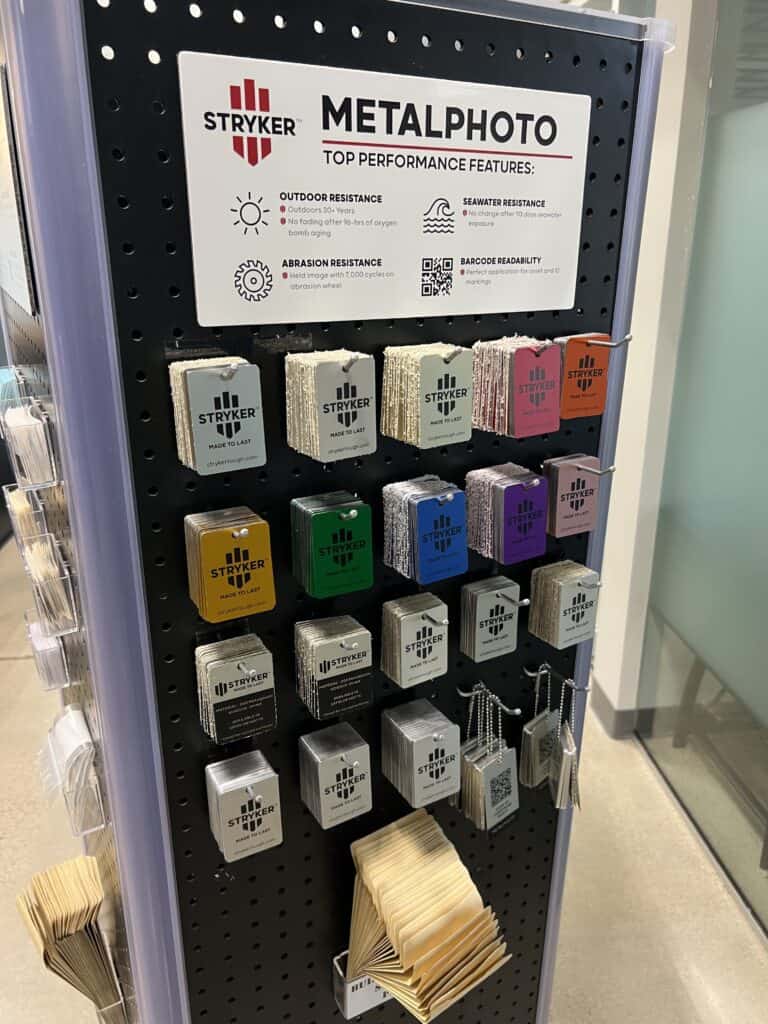
Malson said Northeast Wisconsin residents may remember the TV commercials that promoted the Top Dog side of the house, which promoted its apparel capabilities.
That aspect of the business, she said, originally came into the equation in 2005, when the team performing screen printing on metal asked why they couldn’t do the same on apparel.
With that, Malson said, Top Dog was born.
And for a while, she said it served a retail-focused clientele by delivering cost-competitive screen-printed apparel.
Although the TV campaign was very successful, Malson said she knew the business couldn’t remain focused on the retail market and earning business based primarily on price.
“Top Dog was successful, but it advertised to everyone, and we competed on price constantly – whereas STRYKER is focused on workwear for companies that have field and service staff,” she said. “We are not the cheapest, and we never want to be. We want clients who appreciate durability and pay for the quality product that comes along with it.”
Malson said there is a lot of opportunity for not only customized durable workwear, but to continue to innovate and stay abreast of the trends and changes that come with it, safety among them.
“By focusing on industrial clients, we have been able to learn about everything that goes along with safety apparel, whether that is fire-resistant clothing that trades need, certain reflectivity that other trades need – depending on whether they’re doing road construction versus site construction, etc.,” she said. “We’ve been able to focus on learning about what a certain industry needs rather than every person in the world.”
Malson said the industry includes a significant number of homebuilders as well, including builders who need apparel that works both when they’re in sales mode, as well as working on a job site.
She said it’s something she can identify with personally, as she is just as at home in the office as she is back in the production shop.
“Roofers, landscapers, concrete and a variety of subcontractors – they all understand they need durable apparel and are going to pay for the Carhartt® or Red Kap® brand,” she said. “If they wash their shirt, and it falls apart, that is not acceptable to them and it is not acceptable to us.”
Malson said the shift to a more industrial client – such as construction firms and their subcontractors, electricians, etc. – complemented the existing focus on a more industrial client on the label and nameplate side of the house.
And that, in turn, she said, strengthened the business as a whole.
“It wasn’t until STRYKER came along that the two sides of the business melded together,” she said.
The label and nameplate side of the house, Malson said, does a significant amount of business with high-end industrial clients, as well as defense contracting.
For example, Malson said STRYKER has a contract for labeling U.S. Navy ships being produced in Marinette, defense vehicles for a company just to the south of its operations in Appleton and for several fire trucks and emergency vehicles.
Remaining committed to serving defense contractors, she said, has required some intensive contemplation.
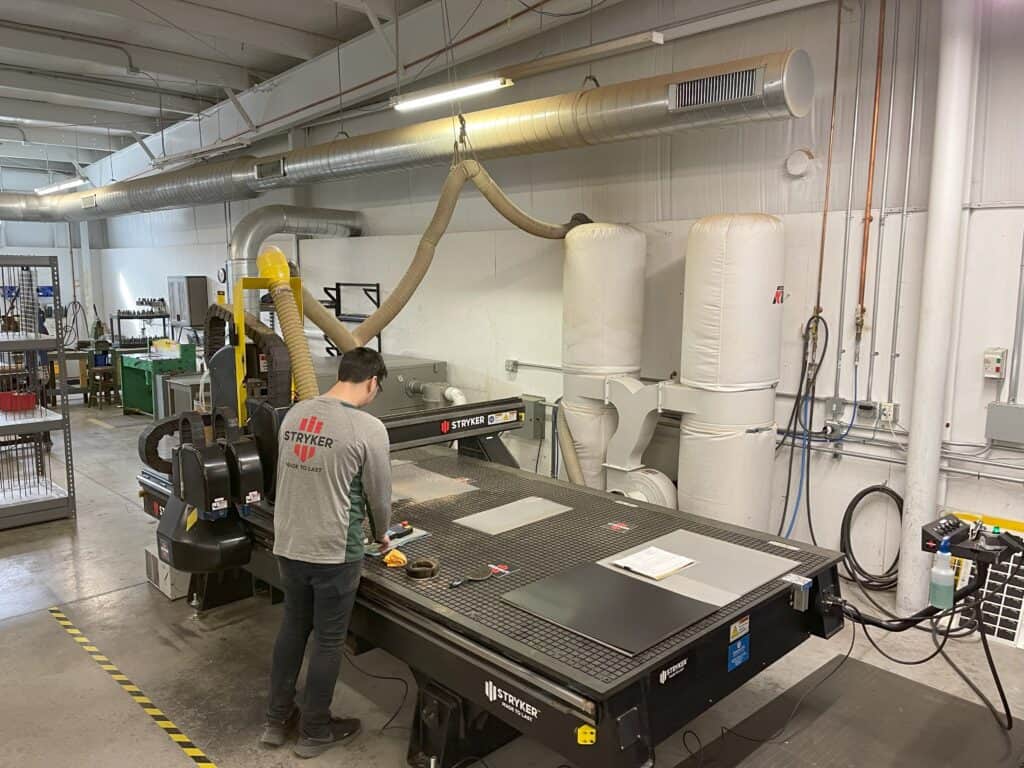
New regulations on the defense contracting side, primarily relating to cybersecurity, Malson said, prompted her to consider – and commit – to an investment to meet those regulations.
“I’m heavily invested in the defense contracting part, as I want to continue labeling Navy ships for a very long time,” she said. “I’m investing in the infrastructure to be certified and adhere to government regulations. One of my Grandpa’s first customers was a shipbuilder in Marinette, and I decided to continue to invest in it. That’s something I was going to have a hard time letting go.”
Letting it go, Malson said, would have been not only an emotional decision but also a significant monetary one.
Collectively, she said industrial clients bring in 60% of the business on the label side of the business – with the remaining 40% coming from the apparel side.
But difficult decision-making and business leadership, Malson said, is nothing new to her, having taken over the business from her mom during a challenging time.
“My mom retired in 2020 when my grandpa died, and then COVID-19 hit as well, and it was devastating to lose him during that time,” she said. “I was like, ‘You know what? I got it.’ Leading through COVID was challenging, but we came out of it a stronger team.”
Recovery from the hit that the pandemic delivered, Malson said, has been a work in progress – taking four years to return to what she considers not only typical sales but also predictable material and labor expenses.
She said work continues to internally improve profit margins, with growth also coming through changes to internal operations.
“We’ve had huge growth in understanding our product and how our company prices our products,” she said.
Growing, evolving as needed
Malson said the team secured a large government contract that will contribute to exponential growth in 2025, complemented by ongoing investments in operations and technology.
“I love technology,” she said. “I automated our labeling process in 2019. We used to cut and punch holes by hand on the labeling, and it wasn’t scalable.”
Malson said STRYKER also invested in a CNC router to cut metal, a transformer and recently purchased a fiber laser that can cut through stainless steel as if it were butter – all intended to create a more efficient operation.
“Without technology, there would be no way we would have grown,” she said. “We wouldn’t be able to do the Navy contract without those machines, as we wouldn’t have the capacity.”
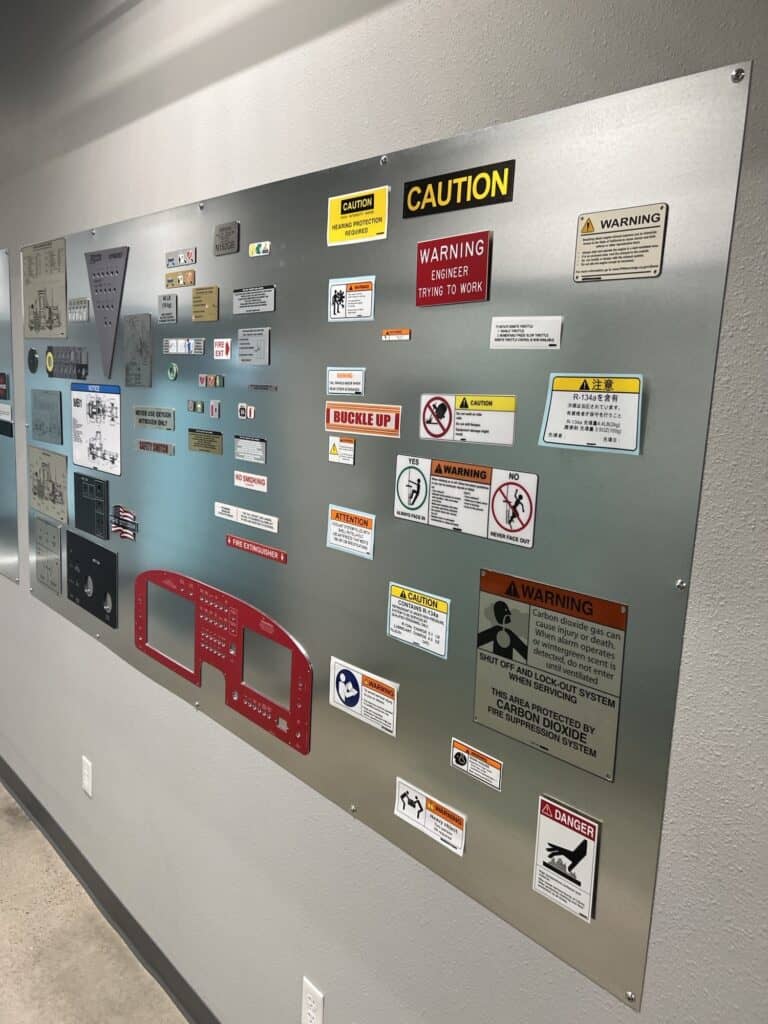
Even so, Malson said it’s a tight fit inside the property at W6251 Neubert Road in Appleton – the first development in the development near Greenville on Highway 15.
The building, which she said was built by Lanser in 2005, features about 12,000 square feet of production space.
And it’s within that space that Malson said she learned the business firsthand, and by hand, starting as an embroidery machine operator while she was still in high school.
She said she then ran a vinyl machine that created heavy-duty stickers before moving to engraving, then to CNC routing and on to marketing.
“That was about the time Top Dog was taking off, and we needed to manage our marketing,” she said.
Malson said she then moved into the role of human resources director in 2014 – a role she said she assumed with intention as she began work to better structure the company.
Regardless of the role, Malson said her team knows she will never ask them to do something she wouldn’t – and hasn’t – done herself, and that hands-on experience has provided her with many operational insights.
“I understand what they can and can’t do because of the experience, and it’s helpful in making high-level decisions now based on my understanding of what happens on the shop floor,” she said.
It’s there, Malson said, where “the magic happens,” producing products that ship daily throughout the United States.
She said the team is fastidious about attention to detail and delivering high-quality apparel.
“We really take pride in what we do, and we do it well,” she said.
That mindfulness of the customer experience is something Malson said was present from the days when her grandpa ran the business.
STRYKER’s Operations Manager John Schuldes has now been with the business for 41 years, and according to Malson, continues to live, breathe and execute on her grandfather’s style of customer service.
Schuldes, Malson said, is now in the process of passing the baton to other employees to ensure a personalized style of service continues.
Many of STRYKER’s customers, Malson said, have been with the company since its inception, and Malson attributes that depth of loyalty to a consistent customer experience.
“(It’s) always (about) being there, always delivering, working with the customer how you need to work with them and always solving the problem,” she said. “That’s what makes the difference, being there for your customers during their time of need. It may be ‘only’ a label, but it could be a label that is holding up a fire truck going to a city to save lives.”
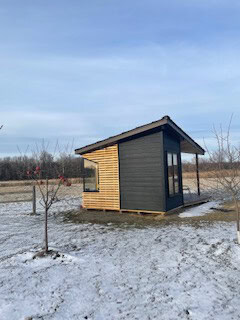 Creating spaces where people can unwind, appreciate world around them
Creating spaces where people can unwind, appreciate world around them Bear Bones Winery embraces ‘rustic elegance,’ local fruit, passion for music
Bear Bones Winery embraces ‘rustic elegance,’ local fruit, passion for music

